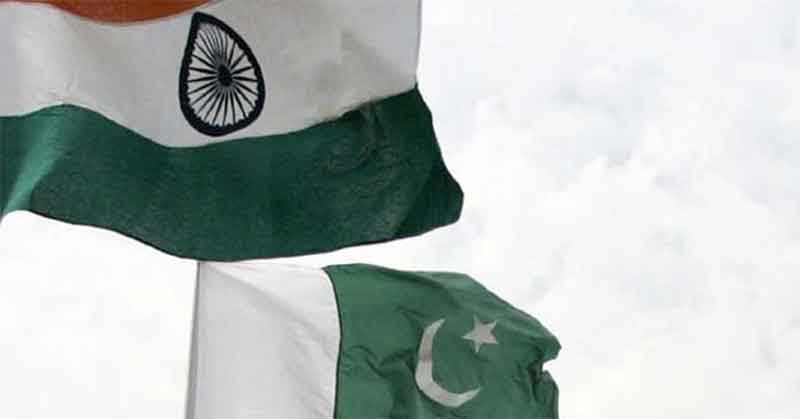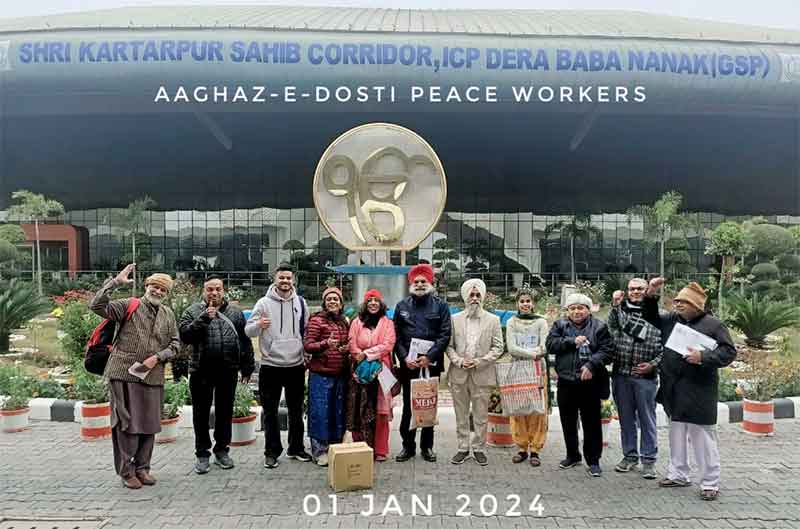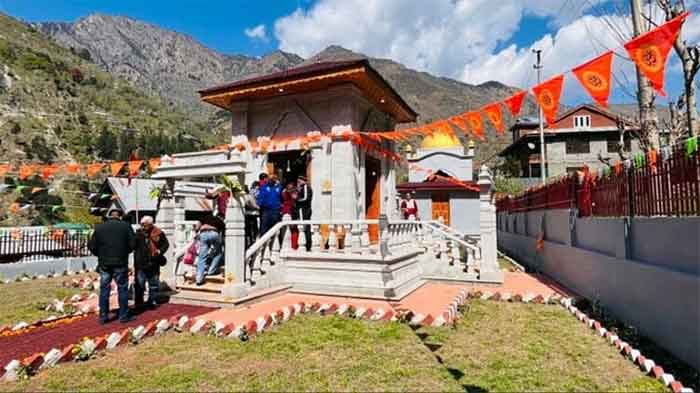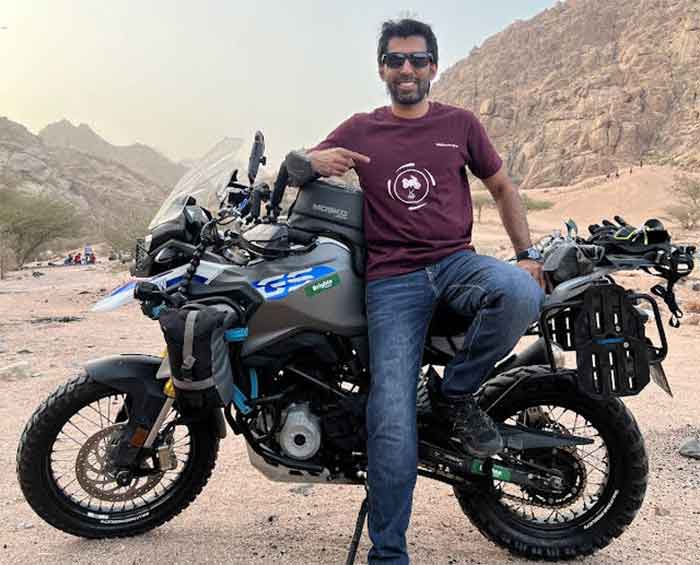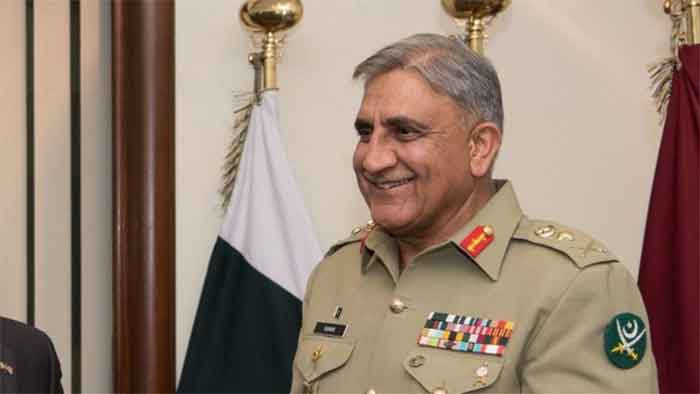
Pakistan’s army chief General Qamar Javed Bajwa called on Thursday for arch rivals India and Pakistan to “bury the past” and move towards cooperation. He expressed that the U.S. had a role to play in ending regional conflict.
The Pak general’s statement is an overture towards New Delhi that follows an unexpected joint ceasefire announcement last month between the two countries’ militaries.
General Bajwa stressed that the burden was on India to create a “conducive environment”, and said Washington had a role to play in ending regional conflicts.
“We feel it is time to bury the past and move forward,” Bajwa said in a speech at a conference in Islamabad meant to highlight the Pakistani government’s new security policies.
“But…our neighbor (India) will have to create a conducive environment, particularly in Indian-occupied Kashmir,” he said.
Pakistan’s powerful army has ruled the country for nearly half of its 73-year existence, and the military has long controlled foreign and security policies.
The militaries of both countries released a rare joint statement on February 25 announcing a ceasefire along the disputed border in Kashmir, having exchanged fire hundreds of times in recent months.
The U.S. immediately welcomed the move, and encouraged the two to “keep building on this progress.”
Bajwa said Pakistan had “hope” in the form of President Joe Biden’s new administration, which he said could help facilitate peace in the region.
General Bajwa said that lasting peace in the sub-continent would remain elusive until the resolution of the Kashmir issue, stressing that it was time for India and Pakistan to “bury the past and move forward.”
Addressing the audience on day two of the first-ever Islamabad Security Dialogue, Bajwa noted that stable Indo-Pak relations were the key to unlocking the potential of South and Central Asia by ensuring connectivity between East and West Asia.
But this potential has always remained hostage to the disputes and issues between the two “nuclear neighbors,” he said.
“The Kashmir issue is obviously at the heart of this. It is important to understand that without the resolution of Kashmir dispute through peaceful means, [the] process of sub-continental rapprochement will always remain susceptible to derailment due to politically motivated bellicosity.”
Bajwa’s comments come a day after Pakistan PM Imran Khan said that India would have to make the first move to normalize ties with Pakistan.
“We are trying, but India would have to take the first step and unless it does that we cannot move ahead,” the prime minister had said while inaugurating the two-day dialogue.
The prime minister, however, did not elaborate what he expected India to do as the first step to resumption of ties.
Commenting on national security challenges, the army chief said: “The world has seen the ravages of the world wars and the Cold War, wherein polarization and neglect of virtues blighted the future and brought catastrophic consequences for humanity.
“Today the leading drivers of change in the world are demography, economy and technology.
“However, one issue that remains central to this concept is economic security and cooperation. Frayed relations between various powers centers of the globe and boomeranging of competing alliances can bring nothing but another stint of Cold War.”
History has taught us that the way ahead has always been through an inter-connected, inter-dependent and collective sense of security, he said,
The army chief added that it was naive to apply the failed solution of yesteryears to the challenges of today and tomorrow. “It is important for the world that leading global players must reach a stable equilibrium through convergence instead of divergence.”
In this environment, developing countries like Pakistan face multi-dimensional challenges, which cannot be navigated single-handedly, he said, adding that a similar situation was being faced by other countries in the region.
“Therefore, we all require multi-lateral, global and regional approach and cooperation to overcome these challenges.”
The Pak army chief also stated that unsettled issues in South Asia are dragging the entire region back into poverty and underdevelopment.
“It is sad to know that even today it [South Asia] is amongst the least integrated regions of the world in terms of trade, infrastructure, water and energy cooperation.
“On top of it, despite being impoverished, we end up spending a lot of our money on defense, which naturally comes at the expense of human development.”
He also noted, “despite rising security challenges, Pakistan has been one of the few [countries] that has resisted the temptation of involving itself in an arms race,” citing a decrease in the country’s defense expenditure.
“This has not been easy, especially when you live in a hostile and unstable neighborhood. But having said that, let me say that we are ready to improve our environment by resolving all our outstanding issues with our neighbors through dialogue in a dignified and peaceful manner,” he said.
The army chief stated that this was “deliberate and based on rationality” and not because of any “pressure.”
“We have learned from the past and are willing to move ahead towards a new future. However, this is contingent on reciprocity.”
He said that Pakistan intended to leverage its geo-strategic location for its own regional and global benefit.
Afghan peace process
The army chief praised his country for its “robust role” in the current quest for peace in Afghanistan and said that it was proof of the country’s “good will and understanding of global and moral obligations.”
Commenting on the historic peace deal between the U.S. and Taliban, Bajwa attributed it to Pakistan’s close collaboration and support for the peace process, which paved the way for intra-Afghan dialogue.
In addition to offering support to the Afghan peace process, Pakistan also took unprecedented steps to enhance Kabul’s trade and connectivity, the army chief said.
Pakistan’s economic potential
The army chief also said that Pakistan was a country with “tremendous” economic potential, adding that it was important for the country to embark on a solid roadmap to carve a promising future for the people.
He maintained that the geo-economic region was centered around four main pillars: moving towards lasting and enduring peace within and outside, non-interference of any kind in the affairs of our neighbors and regional countries, boosting intra-regional trade and connectivity, bringing sustainable development and prosperity through establishment of investment and economic hubs.
Pakistan has been working towards all four aspects, he said. “We had realized that unless our own house was in order, nothing could be expected from the outside.”
He said that after combating terrorism and extremism, Pakistan had moved towards working on sustainable development and improving the economic condition of underdeveloped areas.
Bajwa noted that the China-Pakistan Economic Corridor (CPEC) had been at the heart of Pakistan’s economic transformation plan and the country had sought to make the project inclusive, transparent and attractive for all global and regional players.
But “while CPEC remains central to our vision, only seeing Pakistan through [the] CPEC prism is also misleading,” the army chief stressed.
He said Pakistan’s vital geostrategic location and a transformed vision made it a country of immense and diverse potential, which could very positively contribute to regional development and prosperity.
“This vision, however, remains incomplete without a stable and peaceful South Asia,” he said, adding that Pakistan’s efforts for reviving Saarc and for peace in Afghanistan, and its “responsible and mature behavior in crisis situation with India” manifested its desire to “change the narrative of geo-political contestation into geo-economic integration.”
He emphasized: “It is time that we in South Asia create synergy through connectivity, peaceful co-existence and resource sharing to fight hunger, illiteracy and disease instead of fighting each other.”
National security
Congratulating the National Security Division on organizing the dialogue, Bajwa stated that the contemporary concept of national security was not just about protecting countries from an external and internal threat.
It is also about providing a conducive environment for ensuring human security, national progress and development, he said.
“Surely, it is not solely the function of the armed forces anymore,” he said, adding that national security in the age of globalization, information and connectivity had become an “all encompassing notion.”
“National security is thus multi-layered. The outer layer being the exogenous factors of the global and regional environment, and the internal layers being indigenous factors of internal peace, stability and developmental orientation.
“A nation at peace and a region at harmony are thus essential pre-requisites for attaining national security in the true spirit.”
Whether it be extremism, human rights, environmental hazards or the pandemic, “responding in silos is no more an option,” he said.
‘Co-existence and win-win cooperation’
Pakistan foreign minister Shah Mahmood Qureshi, while addressing the conference, outlined Pakistan’s stance to no longer take part in geopolitical competition and rivalries, and instead pursue “co-existence and win-win cooperation.”
“Pakistan has decided not to be a part of any regional conflict and has consciously chosen to be only a partner for peace and development,” he said.
The foreign minister added that Pakistan was being positioned as an economic hub and “melting pot” of positive global interests.
With the country’s focus shifting from geopolitics to geo-economics, Pakistan was now centring its economic security on the three pillars of “connectivity, providing economic bases as development strategy and peace within our borders and beyond,” said Qureshi.
“To leverage the economic potential of the country, multiple variants of diplomacy are being actively employed by the foreign ministry – including economic, public, digital and science diplomacy.”
GET COUNTERCURRENTS DAILY NEWSLETTER STRAIGHT TO YOUR INBOX



